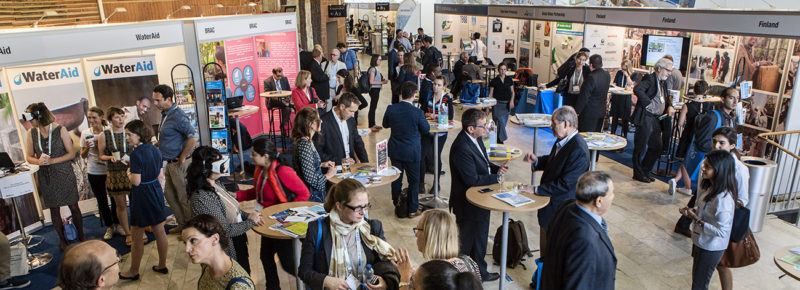Understanding and recognising the many different values attached to water is the key to more efficient use – a must as more people have to share the world’s limited fresh water.

The World Water Week closed on Friday, September 1, 2017 in Stockholm, Sweden, where over 3,200 participants from 133 countries attended several hundred sessions, shared experiences, and discussed solutions to the world’s most critical water challenges.
Water is the lifeline of our civilisation, say the organisers, adding that, without it, there is no hope of sustaining households, industries, food and energy production, or such key functions as hospitals. Access to safe water is necessary in order to implement the global development agenda, they note.
“With increasing scarcity, we must recognise the many values attached to water, be it economic, social, environmental, cultural or religious. I believe that, by re-valuing water, we will develop a deeper understanding and respect for this precious resource, and thus be better prepared for more efficient use,” says Torgny Holmgren, Executive Director of the Stockholm International Water Institute (SIWI), organisers and hosts of the World Water Week.
SIWI is a global water institute that brings together water and development experts and contributes its own expertise to help solve the world’s water challenges.
Throughout World Water Week, links were made between the different values of water, including its monetary value.
“I believe we will see more diverse pricing structures in the future, allowing for more economical and efficient use,” Holmgren stresses.
A growing global population is creating a higher demand for fresh water. Climate-driven changes in weather patterns, leading to extended droughts and devastating floods, further exacerbate pressure on our common water resources.
“Efficient use, therefore, is not an option but a must to ensure availability for all of us,” Holmgren adds.
Another focus of the World Water Week is the realisation of the Sustainable Development Goals (SDGs).
In a filmed message to World Water Week, Amina J Mohamed, Deputy Secretary-General of the United Nations, pressed on the need to accelerate progress towards SDG6 on clean water and sanitation and on all the water-related sustainable development goals.
“Today, strains on water are rising in all regions and climate change is aggravating the challenge. When water is unequally shared, or perceived to be, the risk of local and national conflict increases. We are even seeing in some cases the use of water as a weapon of war.
“The priority now is to harness national leadership and global partnership to scale up action. (…) Only by ensuring the sustainability of fresh water and access to sanitation for all will we achieve the SDGs. Let us value and treasure water as we value and treasure life itself,” concluds Amina J Mohamed.
Nomvula Mokonyane, Minister of Water and Sanitation in South Africa, stressed that mankind needs to embrace new technologies which support her route towards the realisation of the SDGs and that an appreciation must also be given to new world class technologies emanating from Africa.
“We cannot afford to continue to do what we did yesterday and expect to see a different result tomorrow. We must be bold!” says Mokonyane.
Mark Watts from C40, an organisation that gathers mayors of cities worldwide, told World Water Week participants about the risks that big cities face from climate change and how water is key to mitigation and adaptation efforts.
“We see that water pattern disruption is often the first sign of serious climate impacts and 70 per cent of our member cities tell us that they are already seeing the significant and negative impacts of climate change. 64 per cent of our member cities face significant risk from surface and flash floods,” Watts says, adding that water must be part of the climate mitigation programmes, but also a central part of climate adaptation.
World Water Week hosted an event taking stock of water in the implementation of both Agenda 2030 and the Paris Climate Agreement. Addressing the event, Hungarian President János Áder said the world needs a more focused global effort towards tackling water challenges.
World Water Week 2017 was the 27th edition. The 2018 World Water Week, to be held from August 26 to 31 in Stockholm, will focus on “Water, Ecosystems and Human Development”.
